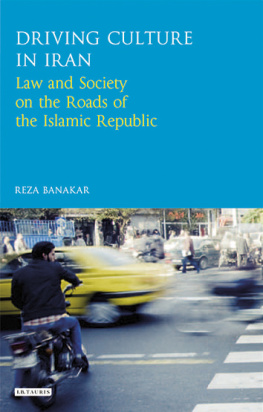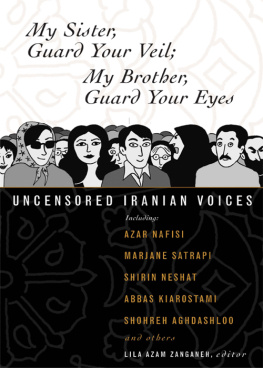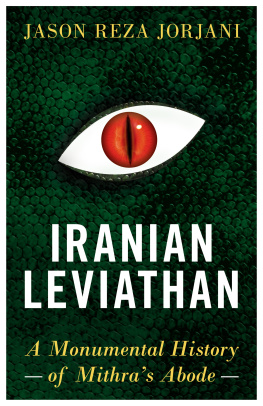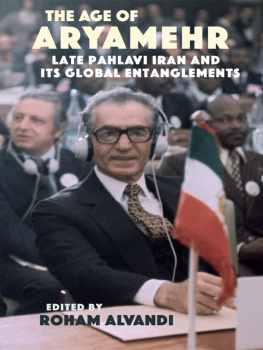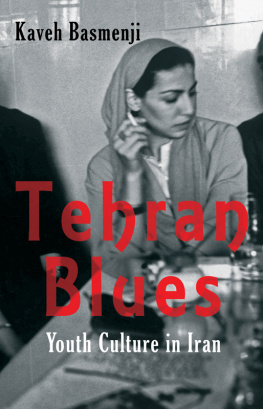Reza Banakar is Professor and Director of Research in the Sociology of Law Department at Lund University. He has previously held the positions of Professor of Socio-Legal Studies at the Department of Advanced Legal Studies, University of Westminster and Research Fellow at the Centre for Socio-Legal Studies, University of Oxford. His recent publications include Normativity in Legal Sociology (2015), Law and Social Theory (2013) and Rights in Context (2010).
In this original and exciting book Reza Banakar and his collaborators use an investigation into driving practices in Iran with its very high rate of road accidents to cast light on a variety of crucial questions that surround that country's legal culture. They draw on fascinating interviews with taxi drivers, doctors, psychologists, insurance agents, and others. The result is an account particularly sensitive to male/female differences, to the way different groups in society relate to the state and to law, and the role religious ideology plays in maintaining order. A must read.
David Nelken, Professor of Comparative & Transnational Law in Context, and Head of Research, The Dickson Poon School of Law, Kings College London
This is a fascinating study, which looks at Iranian legal culture (and Iranian culture in general) through the prism of driving habits and customs in the urban areas of this important country. It is a real contribution to our understanding of the interplay between law and society in a setting where traditional values and the values of the modern automotive and technological society collide.
Professor Lawrence Friedman, Marion Rice Kirkwood Professor of Law, Stanford University
This brilliant and insightful investigation guides us through the current Iranian society. Although Iran is a country of mass automobility, there have been few efforts to reflect on the significance of (auto)mobility in the urban Iran. By disclosing how Iranians experience the traffic problem in everyday life this well-argued book helps us to reach a better understanding of the centrality of gender and class in the complex driving culture in Iran.
Shahram Khosravi, Stockholm University
DRIVING
CULTURE IN
IRAN
Law and Society on the Roads of the Islamic
Republic
R EZA B ANAKAR
with
S HAHRAD N ASROLAHI F ARD , B EHNOOSH P AYVAR
and Z ARA S AEIDZADEH

Published in 2016 by
I.B.Tauris & Co. Ltd
London New York
www.ibtauris.com
Copyright 2016 Reza Banakar, Shahrad Nasrolahi Fard (Chapters 3, 4 and 11),
Behnoosh Payvar (Chapters 7 and 10) and Zara Saeidzadeh (Chapter 8)
The right of Reza Banakar to be identified as the author of this work has been asserted
by the author in accordance with the Copyright, Designs and Patents Act 1988.
All rights reserved. Except for brief quotations in a review, this book, or any part thereof,
may not be reproduced, stored in or introduced into a retrieval system, or transmitted,
in any form or by any means, electronic, mechanical, photocopying,
recording or otherwise, without the prior written permission of the publisher.
Every attempt has been made to gain permission for the use of the images
in this book. Any omissions will be rectified in future editions.
References to websites were correct at the time of writing.
International Library of Iranian Studies 58
ISBN: 978 1 78453 448 6
eISBN: 978 0 85772 873 9
A full CIP record for this book is available from the British Library
A full CIP record is available from the Library of Congress
Library of Congress Catalog Card Number: available
This book is dedicated to women taxi drivers in Iran.
CONTENTS
LIST OF ILLUSTRATIONS
Cover ImageTraffic in Tehran Gustaf hrnell.
Tehran Traffic Jeppe Schilder.
A Junction in Tehran Hamid Shojaee.
Official Requirements for Conducting Social Science Research in Iran.
The Two Stages of the Research Process.
Iranian Languages by Area, Wikimedia Commons.
One of the Main Streets in Central Shiraz Sirus Banakar.
North of Tehran, Wikipedia, Public Domain.
Pedestrian Crossing, Amir Kabir Street, Tehran Gustaf hrnell.
Mullah in Shiraz Jeppe Schilder.
ACKNOWLEDGEMENTS
I am grateful to the Economic and Social Research Foundation (ESRC) in the UK for funding this project, and to the School of Law at the University of Westminster, London, for providing a home for it. The background research for this book was conducted in two consecutive stages in collaboration with Dr Shahrad Nasrolahi Fard: during 2010, when a pilot study was carried out in Shiraz and Tehran, and in 2012, when the larger project funded by the ESRC was conducted in Tehran. Besides myself and Dr Nasrolahi Fard, Dr Behnoosh Payvar and Ms Zara Saeidzadeh have been involved in this project.
This project would not have come to fruition and this book would not have been possible without the kind and generous support of a number of people. Professor Andy Boon, the former Dean of the Law School at the University of Westminster, supported the project within the university at a crucial moment and allowed it to run. Dr Amir Hossein Abadi, Attorney in Law, facilitated the initial stage of our research, Mr Hamid Nasrolahi Fard assisted us in organizing the project in Tehran and Dr Shokouh Hossein Abadi provided us with invaluable legal advice and support at different stages of the project. Mr Keyvan Ziaee has kindly shared his experience of working as a researcher in Iran, and provided text and material which I have employed in Chapter Two, where conducting research in Iran is discussed. Ms Zara Saeidzadeh provided invaluable intellectual support during the time I was writing up the first nine chapters of this book. Many of the insights regarding Iranian culture that appear in this book were developed through critical discussions with Zara. Finally, I am endebted to Ms Ann Williams, who kindly helped me with preparing the first draft of the manuscript and to Mr Ian McDonald who judiciously edited the final draft.
I also acknowledge the kind permission of Mr Sirus Banakar, Mr Gustaf hrnell, Mr Hamid Shojaee and Mr Jeppe Schilder to reproduce their images of traffic in Iran.
Reza Banakar
CHAPTER 1
INTRODUCTION: WHAT HAVE DRIVING HABITS GOT TO DO WITH LAW, GENDER AND CLASS CONFLICTS?
Reza Banakar
When I think about driving, law and traffic rules in Iran, I cant help but wonder if the social problems they jointly pose are not an integral part of a much larger societal problem. The causes should be searched for in the totality of our society, as it is at that level that we have serious shortcomings. The failure to obey the law is endemic [], although it is very pronounced in our disrespect for traffic rules. But the roots of the problem should be sought in the totality of our society. [] What people say and do are two different things, and in my opinion the gap between these two are very large in Iran, and this in itself causes a problem when we try to reform peoples behaviour.
(A medical doctor interviewed as part of this study)
There is an unusually large discrepancy between Iranians actual driving behaviour, which displays a widespread disregard for traffic laws, and their expectations of how one should behave in traffic. This normative hiatus translates itself empirically into high levels of road traffic accidents (RTAs), generating thousands of fatalities and serious traffic-related injuries annually. The picture that will emerge from this study reveals Iranian society as a social space where contrasting ideologies, religious beliefs, loyalties, forms of political authority and personal and collective aspirations clash on a daily basis in order to uphold a form of social order. It will be argued, finally, that this social order is maintained partly by perpetuating class and gender conflicts.
Next page
